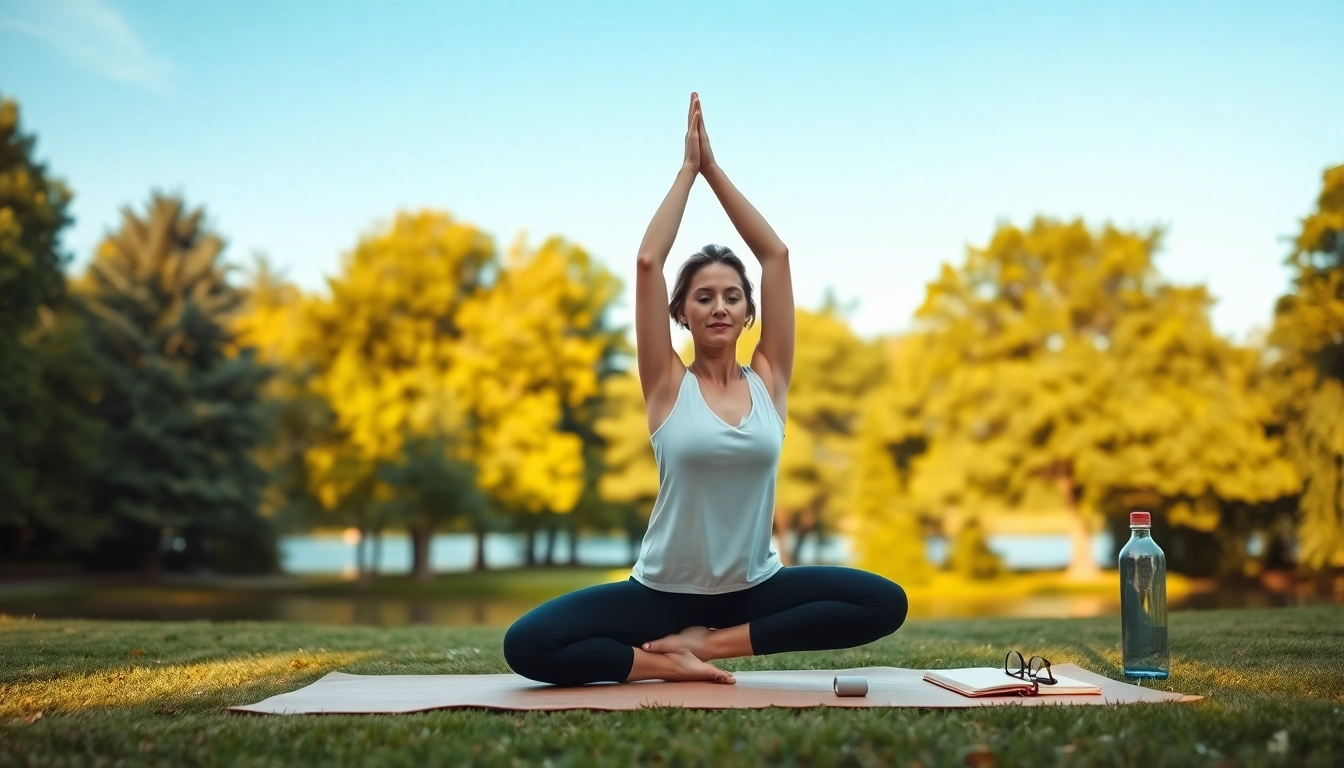Anxiety is a complex emotional response that impacts millions of people worldwide. It can manifest in various forms, from mild apprehension to debilitating panic, often interfering with day-to-day activities and overall quality of life. Understanding how to effectively manage anxiety is crucial for maintaining mental well-being. In this comprehensive guide, we will explore various insights and strategies for dealing with anxiety, equipping you with the tools needed to enhance your coping mechanisms and improve emotional health.
Understanding Anxiety: Symptoms and Triggers
What is Anxiety?
Anxiety is a natural reaction to stress, often characterized by feelings of tension, worry, and apprehension. While everyone experiences anxiety at some point, when these feelings become overwhelming and chronic, they may indicate an anxiety disorder. According to mental health professionals, anxiety disorders can significantly impact an individual’s daily functioning and quality of life.
Common Symptoms of Anxiety
Recognizing the symptoms of anxiety is the first step towards effective management. The common symptoms include:
- Excessive worrying about various aspects of life
- Restlessness or feeling keyed up
- Tiredness or fatigue
- Difficulties concentrating or focusing
- Sleep disturbances, including insomnia or hypersomnia
- Physical symptoms such as headaches, stomachaches, or muscle tension
- Social withdrawal or avoidance of certain situations
If you frequently experience these symptoms, it may be time to examine your triggers and explore coping strategies.
Identifying Personal Triggers for Anxiety
Triggers for anxiety vary widely from person to person and can encompass various situations or stresses in life. Common triggers include:
- Work-related stress and deadlines
- Significant life changes, such as moving or changing jobs
- Social situations, particularly for individuals with social anxiety disorder
- Health concerns, including chronic illness
- Financial strain or instability
Keeping a journal to document your experiences can help uncover specific triggers, allowing you to better prepare for or minimize their impact.
Techniques for Dealing with Anxiety
Mindfulness and Meditation Practices
Mindfulness and meditation are powerful tools for dealing with anxiety. By focusing on the present moment, individuals can reduce racing thoughts that contribute to anxiety. Techniques such as body scans and mindful breathing can help you remain grounded. Start with short, 5-10 minute sessions and gradually increase the duration as you become more comfortable. Resources such as guided meditation apps can provide structure and support.
Physical Activities to Ease Anxiety
Regular physical activity can have profound effects on mental health. Exercise releases endorphins, the body’s natural mood lifters, and helps reduce stress. Here are some effective physical activities for managing anxiety:
- Walking or Jogging: A simple walk can clear your head and reduce feelings of anxiety.
- Yoga: Combining physical movement with breathing techniques can help reduce overall tension and promote relaxation.
- Team Sports: Engaging with others through team sports can provide social support while also being physically active.
Find an activity that you enjoy, as this will increase your likelihood of sticking to it over time.
Breathing Exercises for Immediate Relief
Breathing exercises can quickly reduce anxiety symptoms. Here are a few techniques:
- Diaphragmatic Breathing: Inhale deeply through your nose, allowing your abdomen to expand, then exhale slowly through your mouth.
- 4-7-8 Breathing: Inhale for a count of four, hold the breath for a count of seven, and exhale for a count of eight. Repeat this cycle for several times.
- Box Breathing: Inhale for four counts, hold for four counts, exhale for four counts, and hold again for four counts. This method can be particularly calming.
These simple exercises can serve as immediate and effective tools during moments of heightened anxiety.
Seeking Professional Help for Anxiety
When to Consider Therapy
If self-help strategies aren’t providing adequate relief from anxiety, it may be time to seek professional guidance. Signs that you should consider therapy include:
- Your anxiety interferes with daily activities, relationships, or work.
- You experience frequent panic attacks.
- You turn to substances for relief or escape.
- You feel hopeless or overwhelmed.
Professional guidance can offer tailored strategies and support while ensuring you receive appropriate care.
Types of Therapy for Dealing with Anxiety
Several therapeutic approaches can effectively address anxiety. Here are some popular ones:
- Cognitive Behavioral Therapy (CBT): Focuses on identifying and changing negative thought patterns that contribute to anxiety.
- Exposure Therapy: Involves gradual exposure to the source of anxiety to desensitize and reduce fear.
- Dialectical Behavior Therapy (DBT): Combines cognitive-behavioral techniques with mindfulness practice, helpful for individuals with emotional regulation difficulties.
Choosing the right type of therapy depends on individual needs and preferences. Consult with a mental health professional for guidance.
Understanding Medications for Anxiety Management
Medications can also play a significant role in managing anxiety disorders. Common classes of medications include:
- Antidepressants: Often used as a first-line treatment for generalized anxiety disorder.
- Benzodiazepines: Short-term use can provide immediate relief but may lead to dependencies.
- Beta-blockers: Can help manage physical symptoms of anxiety, such as rapid heartbeat.
Consult closely with a healthcare expert to determine the appropriate medication, if necessary, and to understand potential side effects.
Building a Support System for Dealing with Anxiety
The Importance of Communication
Maintaining open lines of communication with loved ones about your anxiety can be incredibly beneficial. Expressing your thoughts and feelings can help them understand your experiences better and offer support. Consider discussing:
- Your symptoms and their impact on your daily life.
- Specific triggers that exacerbate your anxiety.
- What actions help you feel better when you’re anxious.
Effective communication fosters understanding and creates a supportive environment, making the burden of anxiety feel lighter.
Finding Support Groups
Connecting with others who share similar challenges can be empowering. Support groups provide a platform for sharing experiences, practical advice, and emotional support. You can find support groups through:
- Local mental health organizations
- Online communities focused on mental health
- Public health resources or community centers
Involvement in a support group can lead to positive connections and a sense of belonging.
How Friends and Family Can Help
Your support network has a crucial role to play in your journey to manage anxiety. Friends and family can help by:
- Encouraging healthy daily habits, such as regular exercise and sufficient sleep.
- Supporting professional treatment, whether it be therapy or medication.
- Participating in mindfulness exercises together.
Encourage them to learn about anxiety so they can better understand what you are experiencing.
Long-term Lifestyle Changes to Alleviate Anxiety
Developing Healthy Routines
Establishing a consistent daily routine can provide structure and predictability, which can reduce anxiety. Consider incorporating the following elements into your routine:
- Regular Sleep Schedule: Aim for 7-9 hours per night, going to bed and waking up at the same time daily.
- Balanced Diet: Ensure your meals include a variety of nutrients, focusing on whole foods that energize and nourish your body.
- Consistent Exercise: Schedule regular physical activity that you enjoy to keep you engaged and active.
These habits not only promote physical health but also help regulate emotions and reduce stress levels.
Eating Well for Mental Health
Nutrition plays a vital role in mental health. Certain foods can help alleviate anxiety symptoms. Incorporate the following into your diet:
- Complex carbohydrates: Foods like whole grains and beans can increase serotonin production.
- Omega-3 fatty acids: Found in fish, walnuts, and flaxseeds, these nutrients have been shown to support brain health.
- Antioxidant-rich fruits and vegetables: Berries, leafy greens, and nuts help combat oxidative stress.
Having a well-balanced diet can lead to improved emotional and physical health.
Incorporating Relaxation Techniques into Daily Life
Alongside mindfulness and meditation, integrating other relaxation techniques can greatly benefit your anxiety management. Consider:
- Progressive muscle relaxation: Tension and release in different muscle groups can help alleviate physical sensations associated with anxiety.
- Journaling: Write about your feelings and experiences to process anxiety and reflect on progress.
- Aromatherapy: Using scents like lavender and chamomile can create a calming environment.
Experiment with different techniques to find combinations that suit your lifestyle and preferences.
In conclusion, anxiety is a common condition that many face, but it doesn’t have to dominate your life. By exploring and implementing well-researched techniques and building a supportive network, you can efficiently manage your symptoms. Remember that professional help is always a viable option, and adopting healthy lifestyle changes can contribute significantly to your overall mental health. Whether you are looking for immediate relief strategies or long-term management techniques, this guide aims to empower you to take action in dealing with anxiety successfully.



